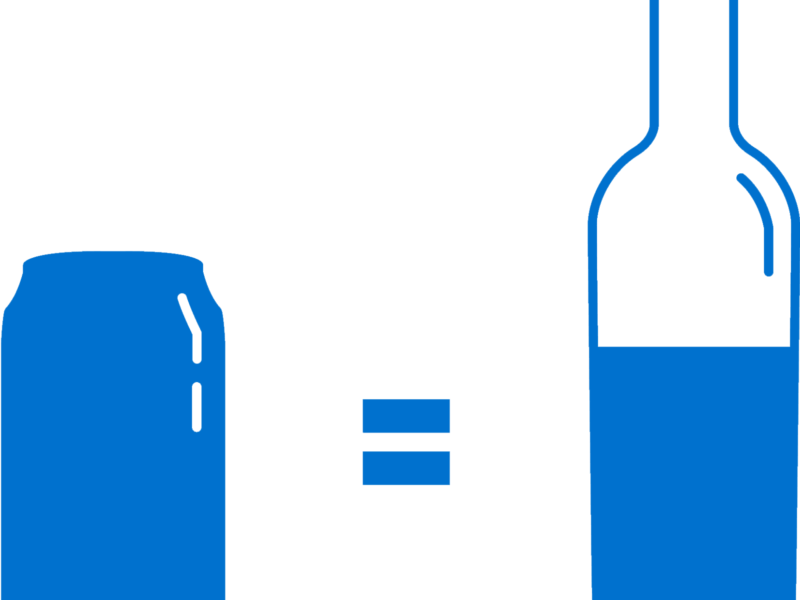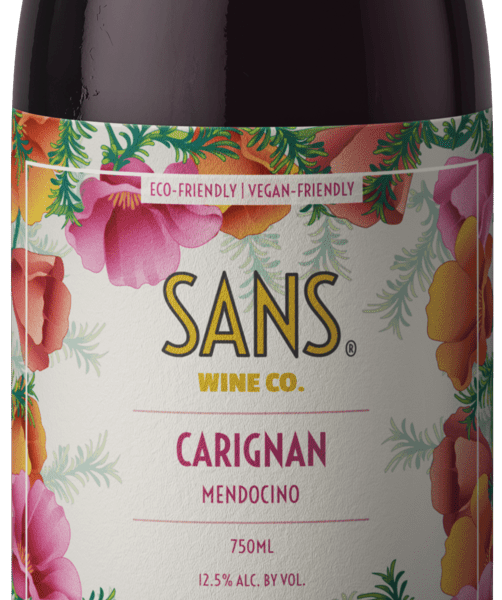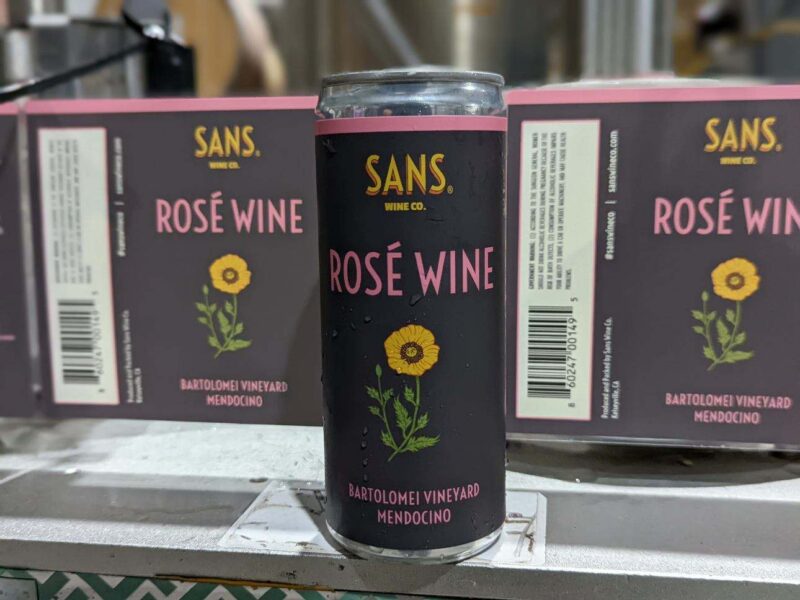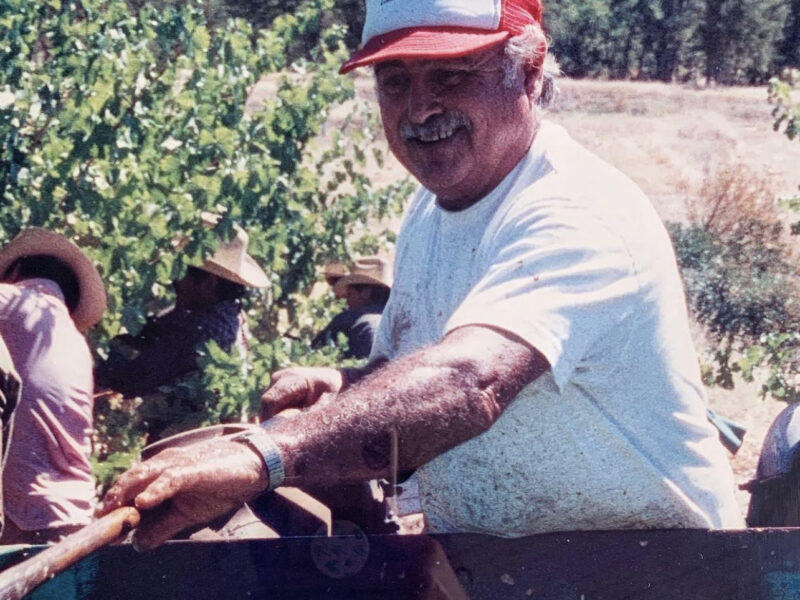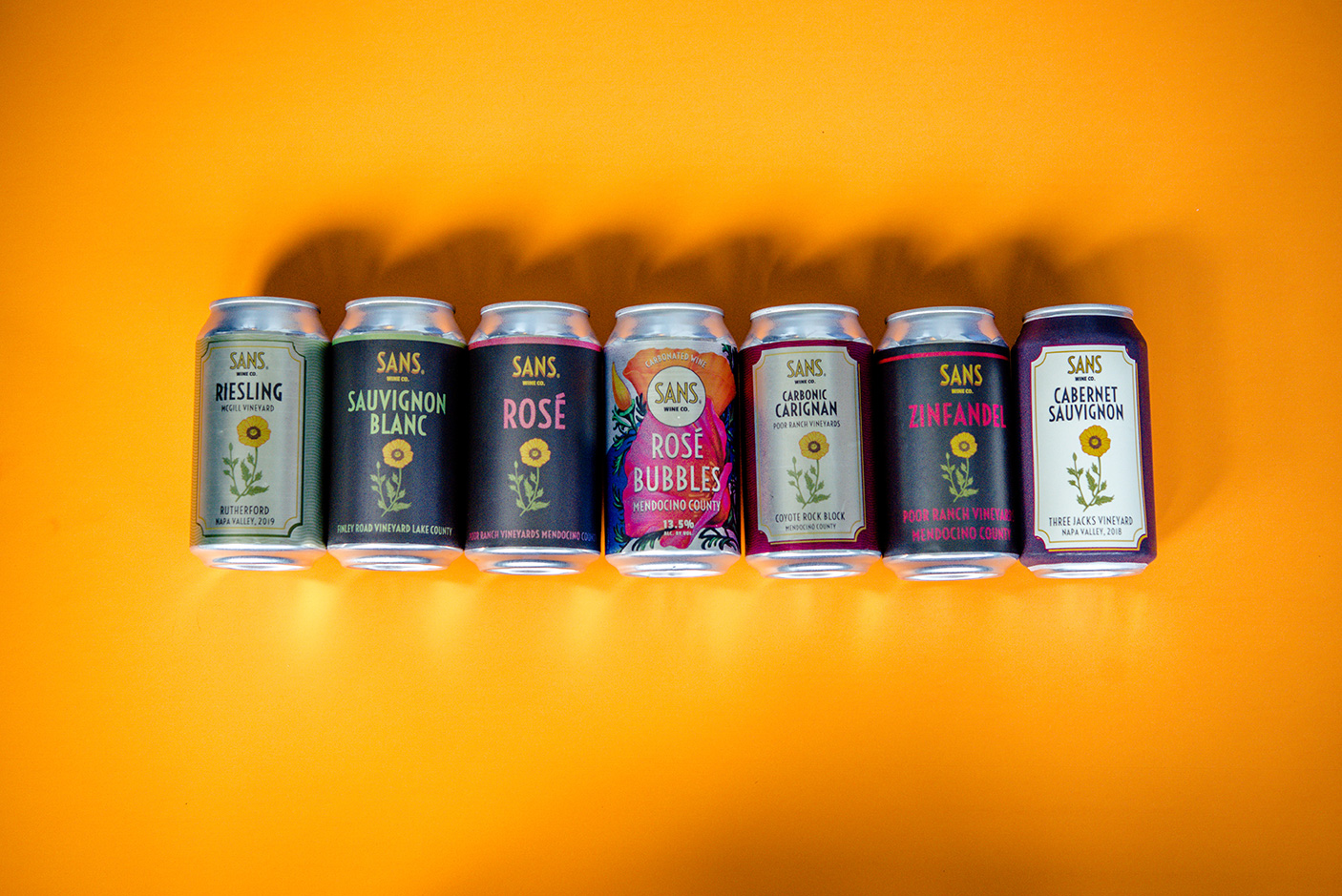
Shelf Life on Canned Wine
“Is there a shelf life for canned wine?”
“Do I have to drink this right away or will it last for a while if I leave it in my fridge?”
“Does the wine taste bad after it’s been sitting in a can for a long time?”
We get asked these questions a lot at wine tasting events. I mean, a lot. Like every 1 in 10 people ask us something about shelf life and what happens to the wine after it’s been in a can for 1-2-5+ years.
Now, I should mention that I am only writing on behalf of our wines, Sans Wine Co. I can’t speak for our competitor’s canned wines. I can only tell you about our experiences with our wines and it’s something I am pretty damn happy with.
Jake and I invited wine writers, bloggers and critics to join us in the first ever vertical canned wine tasting this past January. We sent our boxes of our: 2017, 2018 and 2019 Riesling, Carbonic Carignan and Cabernet Sauvignon. Two weeks before the virtual tasting, we sent these wines in for chemical analysis at ETS, as we wanted to compare the wines chemically from the time in which we canned these wines.
For example, our 2017 Riesling, Carignan and Cabernet Sauvignon wines were canned in March 2018, so at the time of this virtual tasting, these wines had been in aluminum cans for just shy of 3 years. Our 2018 wines had been in cans for 22 months. Our 2019 Riesling, Carignan and Cabernet Sauvignon had been in aluminum cans for 15 months. First impressions or inclinations would be that the 2017 and 2018 wines cannot be good anymore, or they must be oxidized, past their drinking window. I’m here to tell you that has not happened with our wines. It hasn’t even happened with our first vintage – our 2016 wines. I’m just as shocked as you might be.
A few years ago, I started hearing grumblings about a “one year stated shelf life” for canned wine. Nothing more, no explanations, just “one year,” and in articles about canned wines. Other wine companies were saying that there was a 12-18 month drinking window, but with no evidence to back this up (side note: researching what other canned wine companies are saying about shelf life led me down a rabbit hole on blogs and FAQ pages, where I uncovered a lot of misinformation about wine in general, particularly drinking windows). First off, there is NO stated shelf life for canned wine. None, zip, zilch. The one year “drinking window” comes from the length of time that some aluminum can manufacturers will warranty the cans for, to the producer/winery. This has nothing to do with the shelf life of canned wine. After a winery/producer purchases their aluminum cans from the manufacturer, they have a 12 month warranty on said cans.
Back to our vertical wine tasting: we compared the chemical analysis of the three vintages, from January 2021 and the analysis from right before we canned those wines. Jake and I were shocked: our wines had hardly changed, chemically.
Now let me also tell you that we save a couple of cases of each wine, from each vintage that we produce (we have accumulated a nice library pallet at our warehouse!), so that we can go back from time to time and try our wines, at different stages. About every 4-6 months, we pop open one of our older canned wines and we taste it. We taste it next to the current release of said wine. We look at the color, we analyze the smell, taste, acid, structure, finish. And each time, I am always shocked at the freshness of our older wines. As someone who has sold wine in restaurants and in wholesale for over 13 years, the fact that our 2016-2018 canned wines are still vibrant, fresh and acidic, blows my mind. This reiterates our point that cans are a great vessel for wine, particularly natural wines.
There are four factors that contribute to our “extended” shelf life:
- Lack of UV light
- Lack of Oxygen (Liquid Nitrogen dosing)
- Temperature
Cans are not see-through like glass (particularly clear glass bottles). You’ve all been told to store your wine bottles in a dark room or closet if you don’t have a wine fridge, and this is because light is not friendly with wine bottles. Wine Folly explains what happens to glass bottles and wine when it’s exposed to sunlight: wines can become stinky and oxidized. Light causes your wines to age fast, and not necessarily in a positive way.
Have you ever picked up a canned wine at the store and noticed that it’s squishy? Chances are that can o’wine has a nice dose of oxygen inside. Oxygen helps wine “breathe” especially if they are tight and really young (think young Bordeaux or a current release Howell Mountain Cabernet Sauvignon). Aerating these wines, by introducing them to Oxygen help these wines “age” and show more flavors and aromatics. But if oxygen gets trapped into a wine during a canning, the wine oxidizes, ages too fast, and can turn a fresh and bright Rosé into a flabby wine. Our cans are dosed with liquid Nitrogen, prior to when the lid is seamed onto the can. The high doses of liquid Nitrogen that we use, forces out nearly all Oxygen, and fills the headspace of the can with a non reactive gas in liquid form. You may notice all of our canned wines have a slight effervescence with the first sip or pour. This is the Nitrogen releasing and it will blow off very quickly. Our wines have tiny amounts of dissolved oxygen and do age in can, just very slowly.
Aluminum holds cold temperature very, very well. Whenever I am in a rush and need to chill a can of Sans Wine Co. down quickly, I pop it in the freezer for 10 minutes, and voila! I can’t say the same happens for a bottle of wine. I’ve even had personal experiences where I left a can of Zinfandel in my car in July, and after 3 days, I found that Zinfandel can, tossed it in the fridge, opened it up and was pleasantly surprised that the Zin was good! It was great in fact, it just tasted like our Zinfandel. I’ve also accidentally left a bottle of red wine (a Lagrein from Trento actually) in my car in the middle of summer, and the temperature caused the cork to push out, and the bottle leaked all over my backseat. Not fun. And, I ruined a nice bottle of Lagrein.
So, stated shelf life? Not on Sans Wine Co. cans. While we make our wines to enjoy now, in their youth, we welcome stashing a can or two in your fridge or cellar and trying it in a few years. Be a part of this journey with us!
-Gina
Extra Credit: We love referencing this Cornell study whenever discussing wine chemistry and canned wines.



